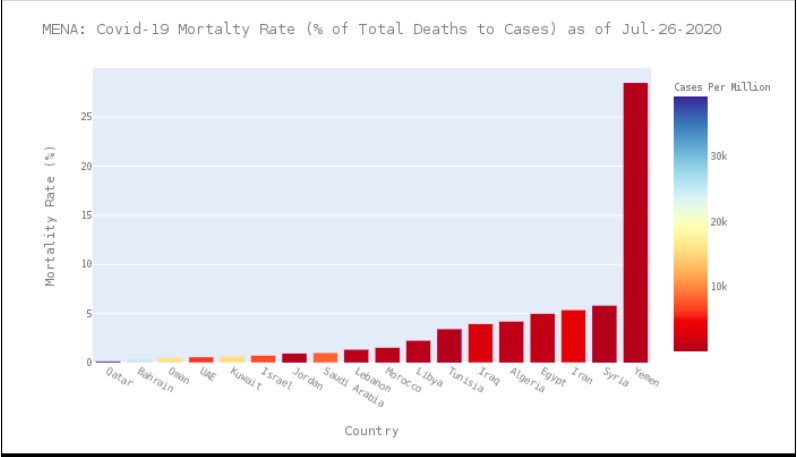Will the Coronavirus Pandemic Speed Up Blockchain’s Evolution?
There is an old saying that goes “Necessity is the mother of invention,” but how about “Necessity finally sparks catchy tech buzzwords into real world usage”?
Blockchain is one of the most overhyped words in technology today – in fact, so much as that all a beverage company had to do was add the word blockchain to its name to cause its shares to soar 200% in one day. The reality is that blockchain will not save the world, but it can truly help save the world; and it can change the world forever.
However, implementing and adopting such a novel technology is no easy task and this has been made evident by the numerous obstacles that companies and projects encounter as they try to do so. But just because it is difficult does not mean it is not going to happen and that it will not happen – there are just many factors are at play. But sometimes it takes a world event, like a pandemic, to push technology forward, and in the case of blockchain technology the pandemic might very well be COVID-19, also known as Coronavirus.

Into the second half of 2020, the world is still battling COVID-19. In fact, for many parts of the world, the struggle has just begun. As of mid-August, the US has reported nearly 6 million infections and 175,000 deaths – while Brazil and India have seen 3.3 million infections and 2.7 million infections, respectively. Additionally, it is feared that there will be a second wave in places like Spain, which is beginning to see a resurgence of the virus after a relatively stable summer. Given these circumstances, one thing is clear – the virus is likely to linger for the foreseeable future. Many governments that have already acknowledged this fact are scrambling to implement the best possible tools to help combat this elusive virus.
How blockchain technology can help information-sharing in real-time
Blockchain facilitates the sharing of information in real-time and the information that exists on the blockchain cannot be tampered with. In this way, governments could create a system where hospitals in their countries each blast out information on the blockchain, updating one another and the public (anyone can access the information on the blockchain) to keep a closer eye on infection rates and daily increases. Unfortunately, one of the biggest issues with the virus, which has likely led to many unnecessarily lost lives, is a lack of good and verifiable information. If there hadn’t been such miscommunication, the world would perhaps be better equipped to handle the virus. Inherently transparent, blockchain technology also provides a neutral ground for countries who may not necessarily have the best relations but are united in their fight against the virus.
Tracking outbreaks
Currently, one of the biggest issues regarding Coronavirus is that although states and provinces are reporting their infection numbers, they are hardly specific – the reporting is limited to large areas, therefore it is impossible to discern whether or not you are safe and clear to travel in certain parts of town. Blockchain could help with this. As a report by BBVA points out, “blockchain can be used for tracking public health data surveillance, particularly for infectious disease outbreaks such as COVID-19”. Individuals can even anonymously report whether or not they are infected by the virus, thereby helping others determine where they can safely travel. Although there is a concern that individuals could falsely report infections, a mechanism could easily be put in place – such as the requirement of including a piece of information that can only be retrieved from the hospital once a positive-test is determined.
Supply chain management for healthcare items
One of the most disheartening consequences of COVID-19 was its exposure of the complete unpreparedness of countries everywhere, most notably developed countries. With mass shortages of personal protective equipment, ventilators and ICU beds, governments faced great desperation in a height of need. But the hope is that great lessons have also been learned. Given blockchain technology’s successful use in the supply chain industry, why not implement the same tool specifically for the medical supply chain industry? The blockchain could be used to track medical supplies, thereby ensuring that there cannot be another shortage disaster. There are many moving parts in the supply chain, but “the entire process of record and verification is tamper-proof by every party, while also allowing anyone to track the process,” the BBVA report also added.
Read more about successful blockchain implementation for supply chain and much more on our blog!

What is being done in blockchain right now to combat COVID-19?
One of the most promising initiatives using blockchain to fight the virus is MiPasa. According to its official website, “MiPasa is a multi-party, multi-source verifiable data sharing platform, built for the challenging road ahead” and uses IBM’s enterprise-grade blockchain Hyperledger Fabric. Behind MiPasa is the World Health Organization, tech giants IBM, Oracle, and Microsoft as well as enterprise blockchain platform HACERA. Among its goals is to provide verified Coronavirus data to help both governments and individuals make better decisions for themselves and their communities.
Many others also see the pandemic as an opportunity to provide useful, lifesaving tools to the world. Enterprise-focused blockchain company ShareRing has also launched a contact tracing system to offer to 2.6 million hotel and other hospitality providers based on the blockchain, according to a Cointelegraph report. It will come in the form of an anonymous e-passport app in order to combat privacy invasion that many have been fearful about.
So there you have it. There is definitely strong reason to be very optimistic that blockchain technology can help save countless lives. And there is no better reason than this to speed up blockchain’s evolution.